Interview: Greig Fraser talks "Lion," his shifting style, and Jane Campion
 Monday, February 20, 2017 at 9:20PM
Monday, February 20, 2017 at 9:20PM 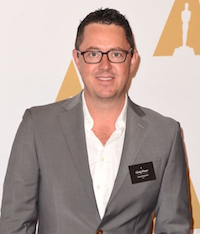 Here's one mystery solved: Greig Fraser isn't pronounced any sort of fancy way. It's merely "Greg" with a silent extra "i". If you want to say it perfectly, though, you'll have to say it with an Aussie accent, mate.
Here's one mystery solved: Greig Fraser isn't pronounced any sort of fancy way. It's merely "Greg" with a silent extra "i". If you want to say it perfectly, though, you'll have to say it with an Aussie accent, mate.
We've been singing the praises of the cinematographer Greig Fraser for 8 years now, even if we often pronounced his name wrong while doing so. After the visually jaw-dropping calling card of Bright Star (2009) one of the new century's most undervalued and most transcendentally beautiful movies, his name appeared more and more regularly in major prestige films. Curiously though, despite his ever broadening range (he's aced virtually every genre he's hopped to and front) and quite a few critically lauded and Oscar nominated movies under his belt, he is just now enjoying his very first Oscar nomination for his evocative and resourceful lensing of the Australian hit and Best Picture nominee Lion.
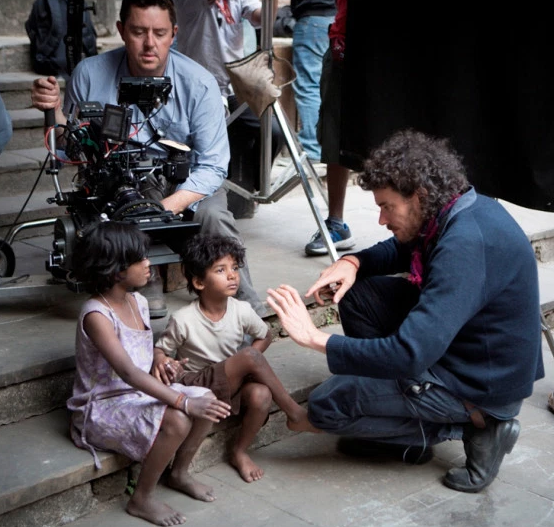 Fraser (top left), Sunny Pawar, and director Garth Davis on the set of Lion
Fraser (top left), Sunny Pawar, and director Garth Davis on the set of Lion
I was eager to talk to him about his ability to tackle any genre, his time with Jane Campion and the challenge of Lion. Here's our interview...
NATHANIEL R: Did it feel like you were shooting two different films with Lion? It has such a clear first and second half with the shift in locales and the leading actor.
GREIG FRASER: There's no two places more different than India or Australia, but no, it didn't. We shot India first with Sunny (Saroo) and Abhishek (Guddu) and we had a little break while we prepped Australia. At the end of India, Dev joined. We might have added Nicole and Rooney and David but it was a little bit like the film kept going, kept chugging away. It was a little bit like we were the train -- not to sound like a pun!
[Laughter]
They were kind of getting on the train as we continued the journey...
So you didn't think of it as different aesthetic at all?
Garth and I were very particular about not forcing it to be a different look. Frankly we didn't need to. But we obviously had to change the way we shot our adult versus our child but it wasn't as pointed as 'Okay, now we're in Australia. Let's use different lenses'
What do you mean about shooting a child actor differently?
Their height and where you put the camera. All camera systems are designed to shoot a person between 5 and 6 foot! It's quite a bit harder to shoot a child with success. Steadicam is not the right height. We used a gimbal rig and it was the best thing to shoot the child with.
What was the hardest thing? The movie is beautiful but I can't imagine it was easy.
It's not. I tried to shoot with natural light when it existed but there were times we had to light. The perfect example is the first train station where he gets lost. He wakes up and there's nobody around. That was a completely dark cargo station. We had no lights in there at all. Rather than lighting with film light we went to the local Home Depot -- which is not the Home Depot in India, but something else. We bought a lot of flurouescent light, the same lighting that actually exists in those stations except we had complete control over it.
I first starting following your career with Bright Star (2009). I'm a crazy Jane Campion fan
Aren't we all? Everything she does is mindblowing.
In some ways that was your breakthrough movie. You've since proven to have tremendous range but how did she know to have such faith in you for such a visual feast of a movie?
I had done longer form things before that and I'd worked with Jane on a little short called The Water Diary. That was a film we did over the space of five or six days. She took the previous work into account and also our experience together. Jane is so progressive and so trusting. I think what happens is the people that she trusts, they return that favor; they give her 1000% of their energies. That's what I did on Bright Star
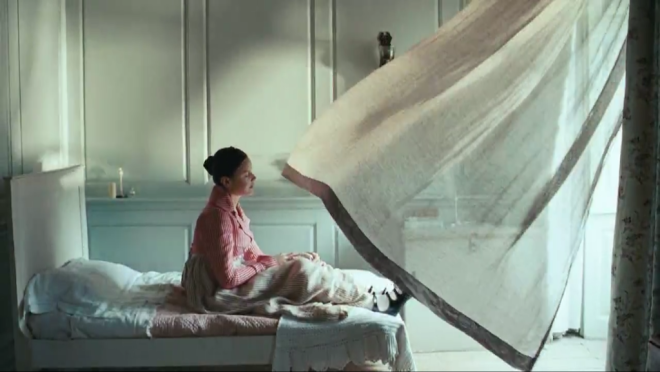
Did you feel a huge shift in your career after that or was it more of a natural progression.
It did feel like a natural progression but that's not to discount the opportunity of working with a world famous world class director like Jane Campion. I'm not discounting that in any way shape or form. But I kind of put my head down and my bum up. I think that's an expression you use in America, right?
[Laughter] Maybe not the 'bum up' part.
Okay, right. "Head down, bum up." As in 'keep your eyes on the road'. Keep toiling. That same year [as Bright Star] I did two other films in Autralia. I just wanted to work really hard and keep my head down.
One of the things that's interesting about your career is how hard you have been to pin down. I can't say looking at a movie 'This looks like Greig Fraser shot it!'. Is that a good thing or a bad thing for you to hear?
It's a great thing! It's very deliberate. It's part of my career strategy.
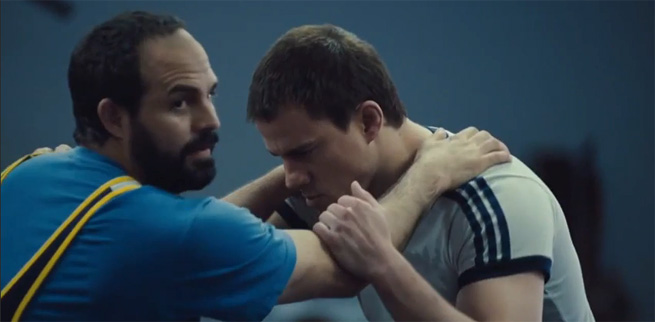
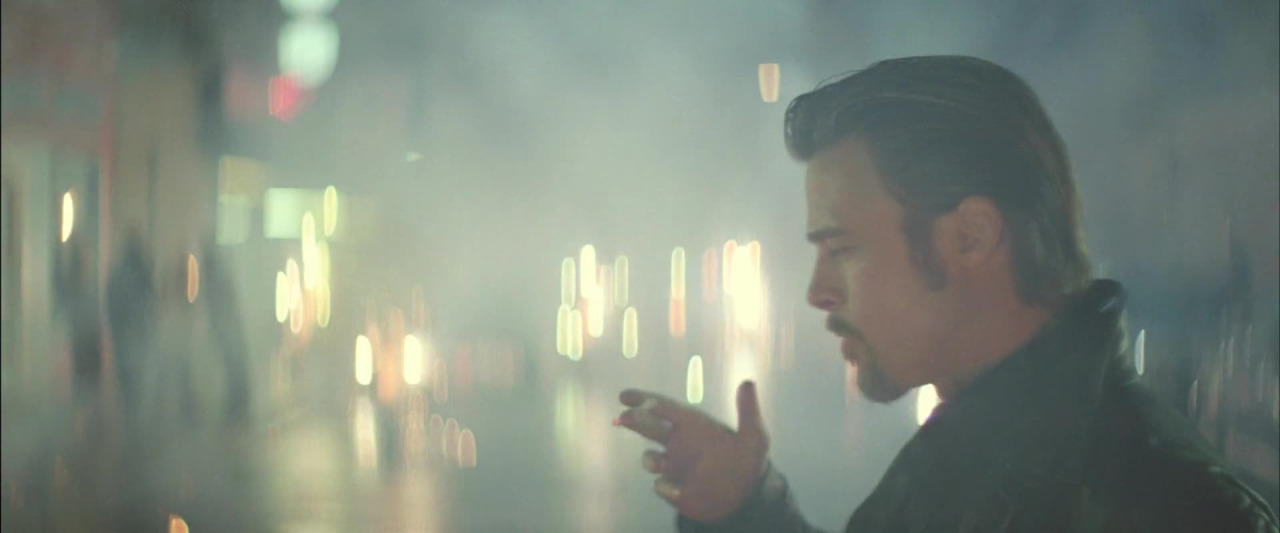 Three Fraser films - Let Me In, Foxcatcher, Killing Me Softly
Three Fraser films - Let Me In, Foxcatcher, Killing Me Softly
The reason I say that is sometimes with the really famous cinematographers you can say "ooh, that's a Deakins shot" or "yeah, that's Janusz Kaminski". Do you think this is just because you've worked with a lot of different directors and genres?
One of the things I suffer from -- iit's a good thing or a bad thing depending on who is asking -- I have quite a short attention span. When Bright Star came out I got quite a few calls to do other period films but that wasn't what I was searching to do next. I had done it. I wasn't bored of it. That's not right but I thought 'I've done that. I can close that off. I'll put that in a Bright Star box.' I wasn't able to commit to another period movie.
When Matt Reeves asked me to do Let Me In -- he saw Bright Star, he responded to it and that's why he asked. I thought that was so clever. He's asking a guy who did a period movie to do a modern day vampire film. To me that was inspired because he'd gone against the grain but had seen elements he wanted. He wanted the intimacy of Bright Star for his film. I was 'Of course!' . I hadn't seen the original at the point and it was the perfect thing for me to do because it was diametrically opposed to New England in the 1800s.
You're restless then.
I don't strategize so much as respond to what I'm keen on at that point in time. If I've just done a space movie then I might not be as keen to do a space film. I've just done a Biblical film like I've just done -- it's called Mary Magdalene. I can pretty much assure you my next film will not be a Biblical film!
[Laughter] That's great but it is slightly unusual. Some people become known for one or two different types of things and that's what keeps them employed.
The ultimate goal is we don't work to live, we live to work. I'm fortunate in the sense that I can stay employed doing commercials, documentaries -- there are so many great things out there to film.
From the moviegoer perspective your career has been exciting because of the surprises in your range. When I see your name, I'm like 'Yay!'
Awesome. I seriously appreciate you saying that. What it says to me -- I've been very focused on making sure the work is as good as it could be regardless of genre or whether it's a film or a music video. For somebody like yourself to notice that means a lot because it means I'm not just inside the bubble that is Greig Fraser's Brain.
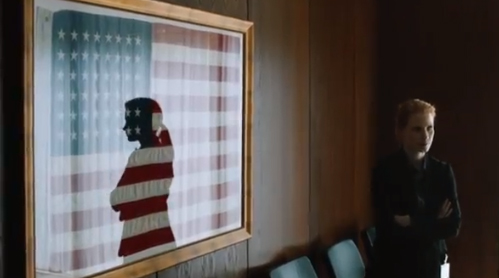 Zero Dark Thirty
Zero Dark Thirty
What's your favorite part of the job: The travel? Developing the visual style? Lighting great movie star faces? Or maybe there's not a best part.
I can't answer that. The job of a DP is so multi-faceted. Yes, we do light our lead actor or actress and we do try to make them look as good (or in some cases as bad) as possible. That's one aspect of it. The other aspect is the relationship with the director. Ultimately they're the captain of the ship and they're the one sailing it through the straights with all these obstacles that come up. You need to be making sure that you're backing that director while maintaining the aesthsetic that you've worked at.
One of the joyous things about Lion is we had a lot of prep time. I've known Garth for a long time so we were able to develop a strong aesthetic. The same thing applied to Rogue One -- I had a lot of prep time. It's like world building. You build a world on screen be it Pennsylvania for Foxcatcher, be it CIA offices for Zero Dark Thirty, India for Lion, space for Rogue One. You build the world and the world needs to stay within those parameters. I want to build really exciting worlds.
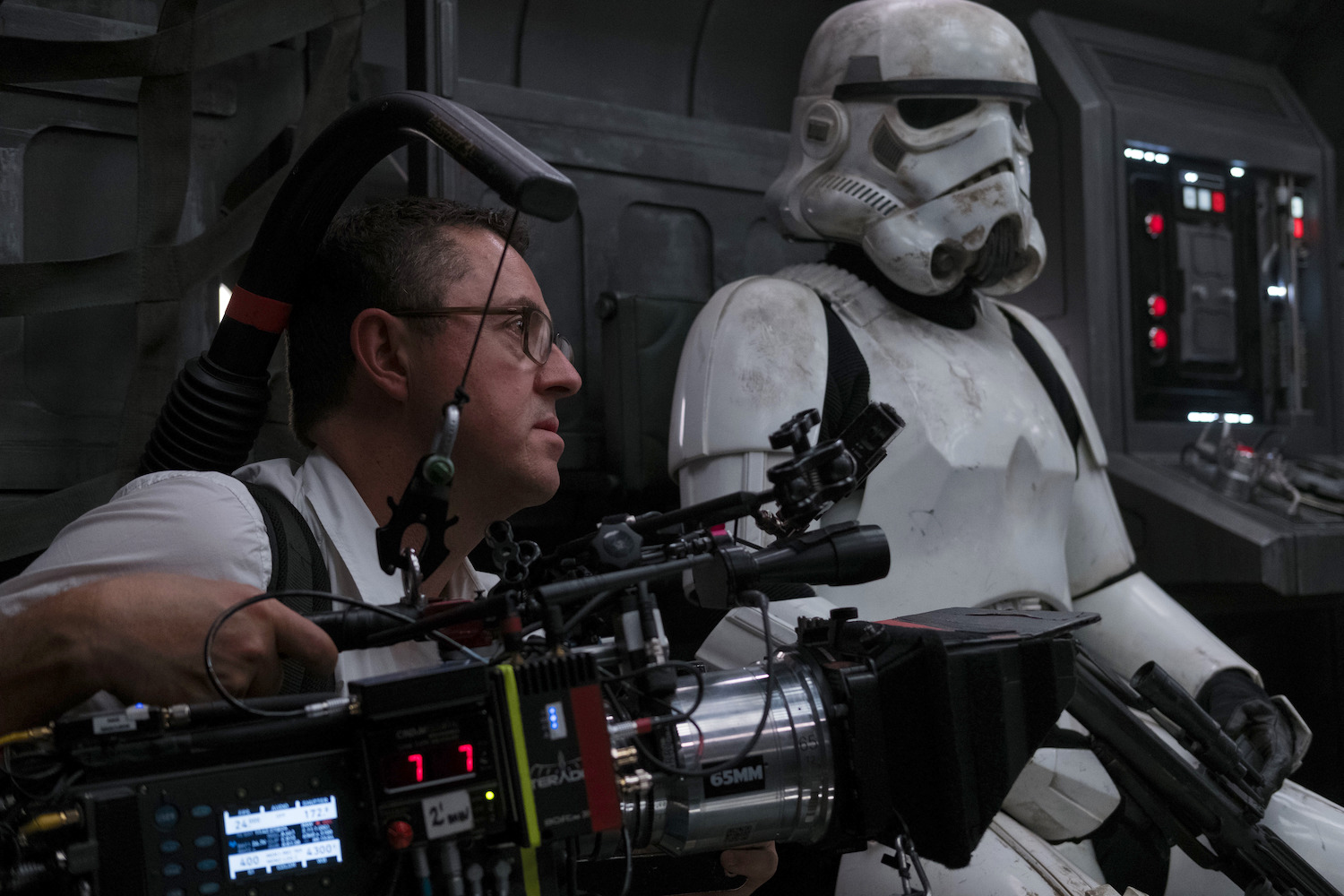 Fraser on the set of Rogue One
Fraser on the set of Rogue One
Does that mean more big franchise movies like Rogue One in the future?
You know. I couldn't rule it out or in. It depends on what is occuring at any given time and who is directing it. But at the same time, Mary Magdalene was a small film that we did late last year and it was so much fun.
I'm reading scripts that are big and scripts that are small and I treat them with the same question: Could I contribute amazing results to this or will I just be a passenger on the bus called 'XYZ Film'. If I can help be a strong component of this, then I'll generally want to be a part of it.




Reader Comments (3)
I appreciate that he doesn't have a single "look" that defines his cinematography, but a lot of his films seem to be -- for lack of a better phrase -- a little soft or grainy. I mean that in a good way! There's something that says *film*, in the way of 70s cinema. I'm probably overgeneralizing. Good interview!
Please, I've been following him since 2006! The Caterpillar Wish, Out of the Blue, Stranded and the aforementioned Water Diary. Such a great talent.
My favourites of his would be Bright Star, Killing Them Softly, Zero Dark Thirty, and, of course, Lion.
'Head down, bum up' - classic Australian slang for getting to work, which sounds a lot like slang for something else!